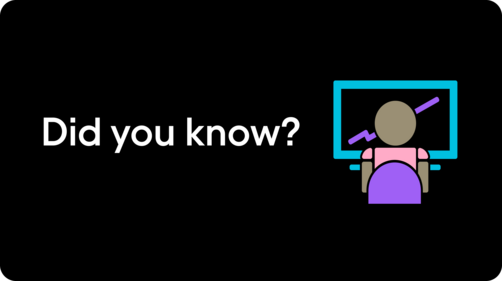Understanding Self-Employment, Universal Credit, and Taxation

When you’ve just signed up as self-employed, understanding how your earnings affect your partner's Universal Credit (UC) claim can be daunting. The Universal Credit system in the UK is designed to provide financial support to individuals and families with low income or who are unemployed. However, the process of declaring self-employed earnings adds a layer of complexity, especially as your partner’s UC is calculated based on household income.
Universal Credit takes into account the net income of both partners in the household. This means that your self-employment earnings can affect the amount of UC your partner receives. An important aspect to remember is that earnings declarations require careful documentation and adherence to HMRC guidelines to avoid discrepancies or penalties.
For self-employed individuals, it's pivotal to distinguish between gross earnings and net earnings - the latter being your earnings after allowable business expenses have been deducted but before tax. The Pie Tax App can assist you in accurately calculating these figures, ensuring you remain compliant while maximising your benefits.
How Universal Credit is Calculated
Universal Credit considers the total household income when calculating the benefit. This includes your self-employment earnings minus any business expenses. Therefore, clear reporting is essential to ensure accurate calculations.


The Role of HMRC in Reporting
HMRC requires all self-employed individuals to report their income accurately. Track your income and expenses efficiently, ensuring that your declarations are precise and compliant with government regulations.

According to recent statistics, over 5 million individuals are currently self-employed in the UK. The integration of their earnings into the Universal Credit system impacts numerous households, making accurate reporting crucial.Impact of Self-Employment Income

Data shows that allowable business expenses can reduce taxable income by 20-30%. Accurately recording these expenses not only reduces tax liability but also ensures correct UC calculations.Business Expenses and Net Earnings

Declaring Self-Employment Earnings
Declaring self-employment earnings accurately when your partner is on Universal Credit involves recording all sources of income and allowable expenses. Here are detailed steps to ensure you manage this process correctly.
First, keep thorough records of all your business transactions. Use the Pie Tax App to track your income and expenditures in real-time. You should also maintain receipts and invoices for all business transactions, as these are essential when calculating your net earnings.
Second, understand and claim all allowable business expenses. This includes costs like office supplies, travel expenses, and utility bills for your business premises. By understanding what you can deduct, you can reduce your net income, which in turn, impacts the Universal Credit calculation favourably for your household.
Submitting your Earnings to HMRC
Once you’ve accurately recorded and calculated your income and expenses, the next step is to submit your earnings to HMRC. The Pie Tax App simplifies this process by offering seamless submission features that ensure all necessary data is included.
HMRC will use the information you provide to determine your tax liability. Remember, Universal Credit calculations will consider the net income, so it's crucial to report your earnings after deducting allowable expenses but before tax. If there are any discrepancies or confusion, the expert tax assistants available on the Pie Tax App provide invaluable support.

Tips for Declaring Self-Employment Earnings When Your Partner is on Universal Credit

Ensure all income and expenses are meticulously recorded. Accurate records help provide a clear picture of your earnings, crucial for Universal Credit assessments.Keep Detailed Records

Submit your self-employment earnings to Universal Credit each month. This regular reporting ensures your partner’s Universal Credit payments are accurately calculated and adjusted as needed.Report Earnings Monthly

Seek advice from a tax professional to understand the impact of your earnings on Universal Credit. A tax advisor can help navigate complex regulations and optimise your benefits.Consult a Tax Advisor

Fun Fact about Self-Employment
Did you know that self-employed individuals in the UK have increased by nearly 40% over the last decade? The flexibility and opportunities that self-employment offers continue to attract more people each year.
Handling Your Earnings and UC Together

Managing self-employment earnings alongside your partner’s Universal Credit requires strategic planning and consistent effort. Here’s how to handle the process effectively.
Firstly, make use of digital tools like the Pie Tax App to streamline your financial tracking. Automating the recording of income and expenses can save time and improve accuracy.
Secondly, coordinate with your partner to understand the monthly Universal Credit changes. Because UC is recalculated monthly based on income, knowing how your earnings impact the benefits helps in better financial planning.

Utilising digital tools not only simplifies the recording and tracking process but also ensures accuracy. The Pie Tax App is designed to help self-employed individuals manage their finances efficiently, providing real-time updates and comprehensive reports.Use Digital Tools

Understanding how your self-employment earnings impact your partner's UC benefits will allow for better planning and resource allocation. Regularly review your household income and plan expenses accordingly to avoid financial pitfalls.Coordinate with Your Partner
Summary
Navigating the complexities of Universal Credit while managing your self-employment earnings can be challenging. However, with the right tools and guidance, it becomes manageable. Accurately recording and declaring your self-employment earnings ensure that your household receives the correct UC amount while staying compliant with HMRC.
The Pie Tax App is an invaluable resource in this process. From tracking income and expenses to submitting accurate declarations to HMRC, this tool simplifies the complexities of self-employment. The expert tax assistants available on the Pie Tax App provide personalised advice, ensuring you maximise your benefits and remain compliant with all regulations.
Frequently Asked Questions
How Often Should I Report My Earnings to HMRC?
As a self-employed individual, you should report your earnings annually through a Self-Assessment tax return. However, regular updates and using tools like the Pie Tax App can ensure you are always prepared.
What Expenses Can I Deduct from My Earnings?
Allowable expenses include costs that are essential for running your business, such as office supplies, travel costs, utility bills, and marketing expenses. Keeping detailed records of these expenditures is crucial for accurate reporting and tax deductions.
How Does My Earnings Declaration Affect Universal Credit?
Universal Credit is calculated based on the household’s net income. Accurate earnings declarations ensure your partner receives the correct UC amount.
What records do I need to keep for tax purposes?
You should keep records of all your income and expenses, including receipts, invoices, bank statements, and any other documentation that supports your financial activities. These records are necessary for completing your Self Assessment tax return and for any potential HMRC audits.
How do I claim Universal Credit as a self-employed person?
To claim Universal Credit, you need to report your self-employment income and expenses monthly. You'll be assessed through the Minimum Income Floor, which assumes a minimum level of earnings based on the National Living Wage.




